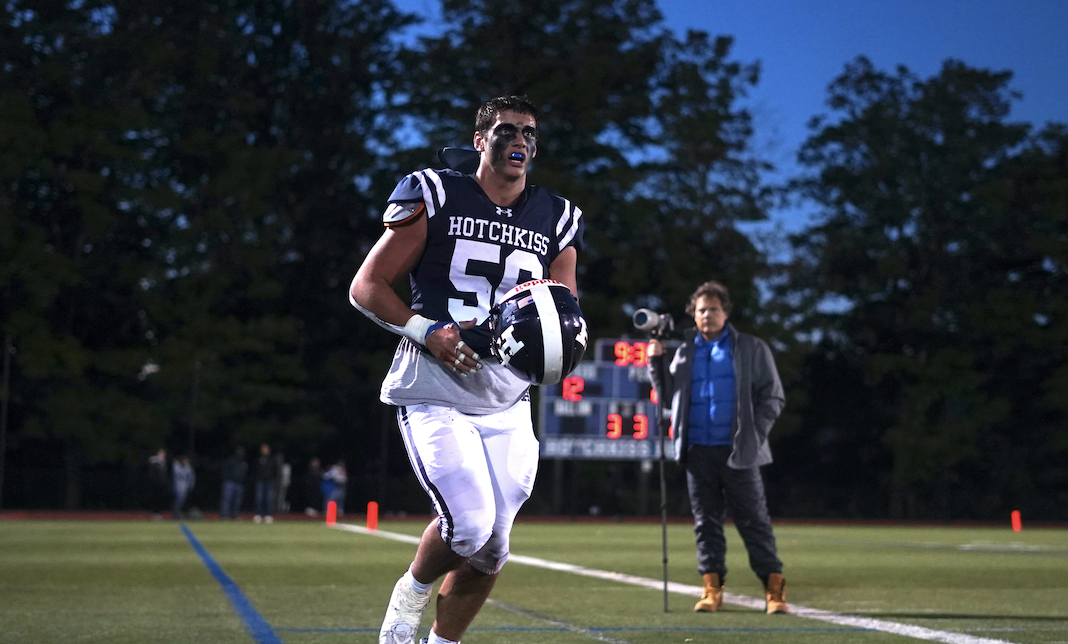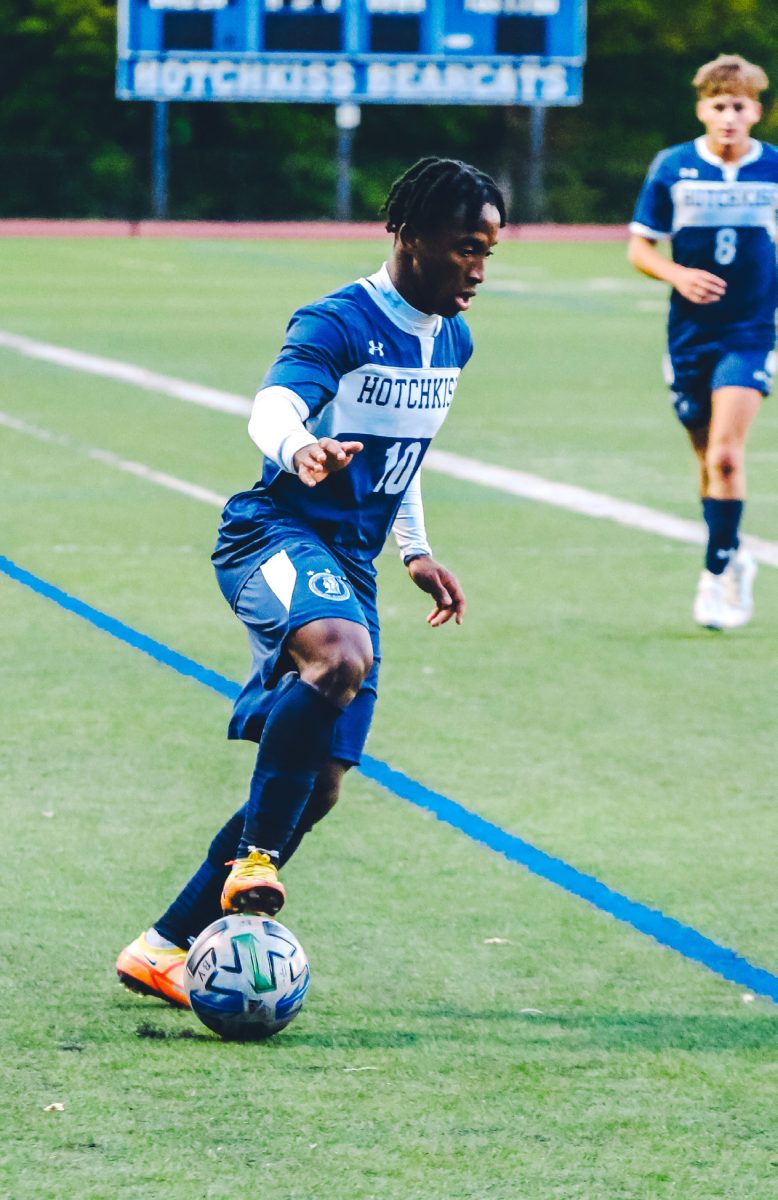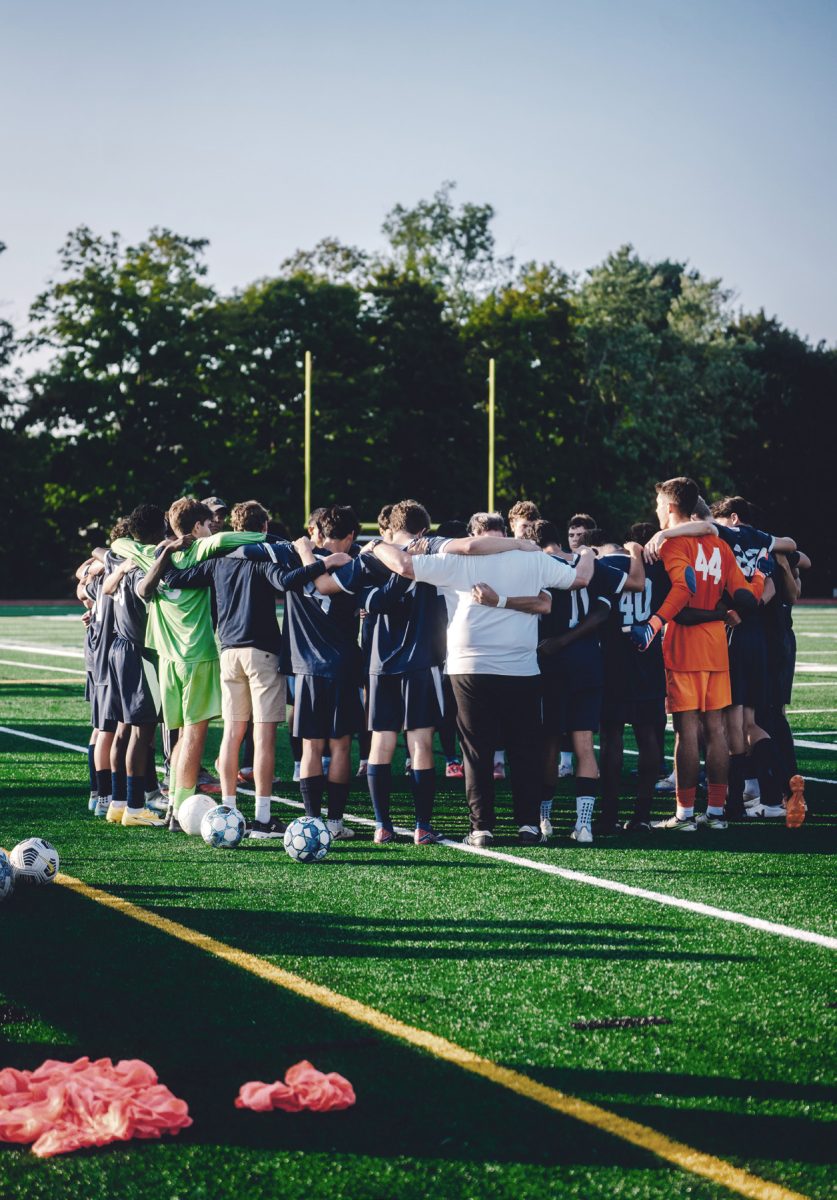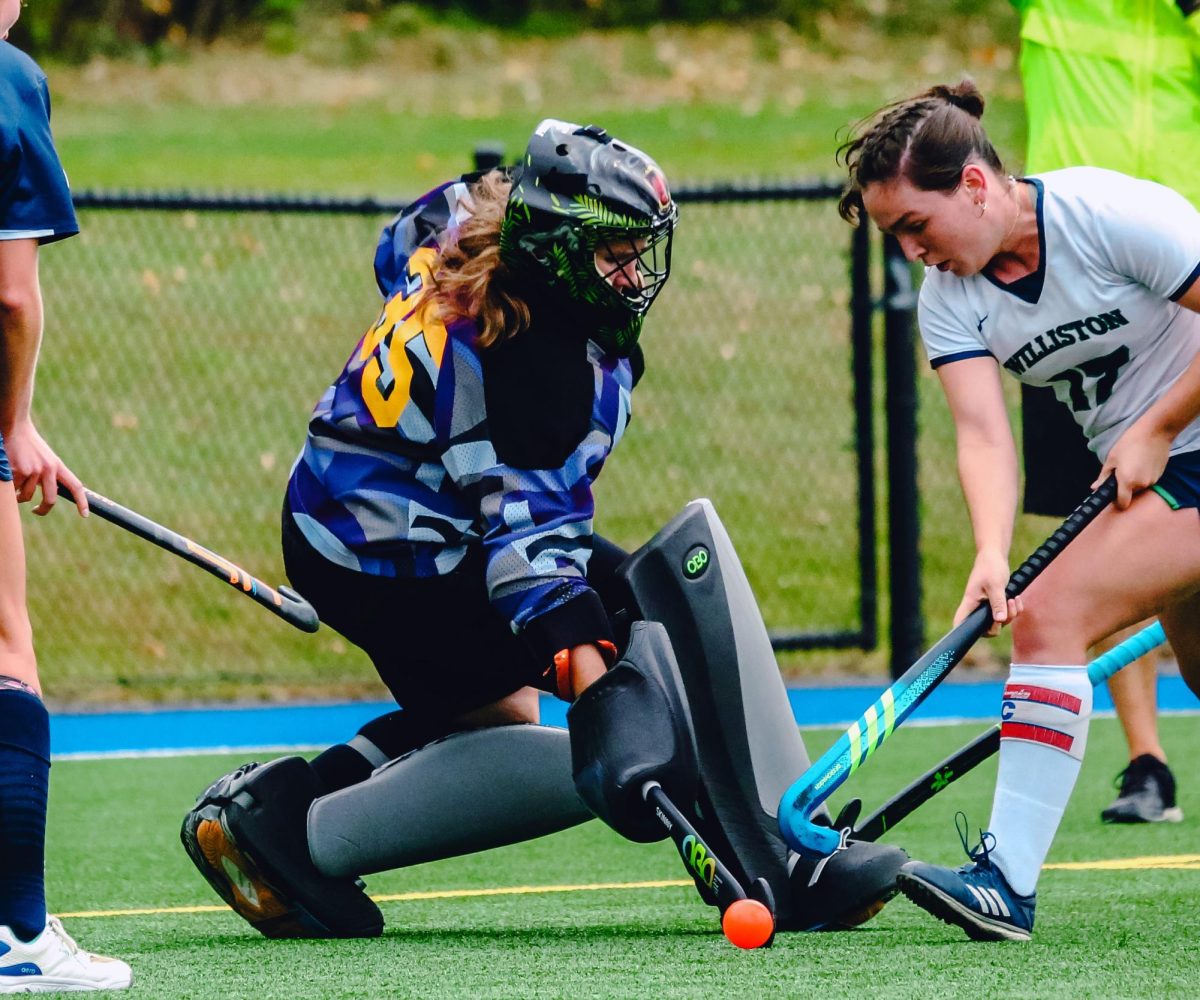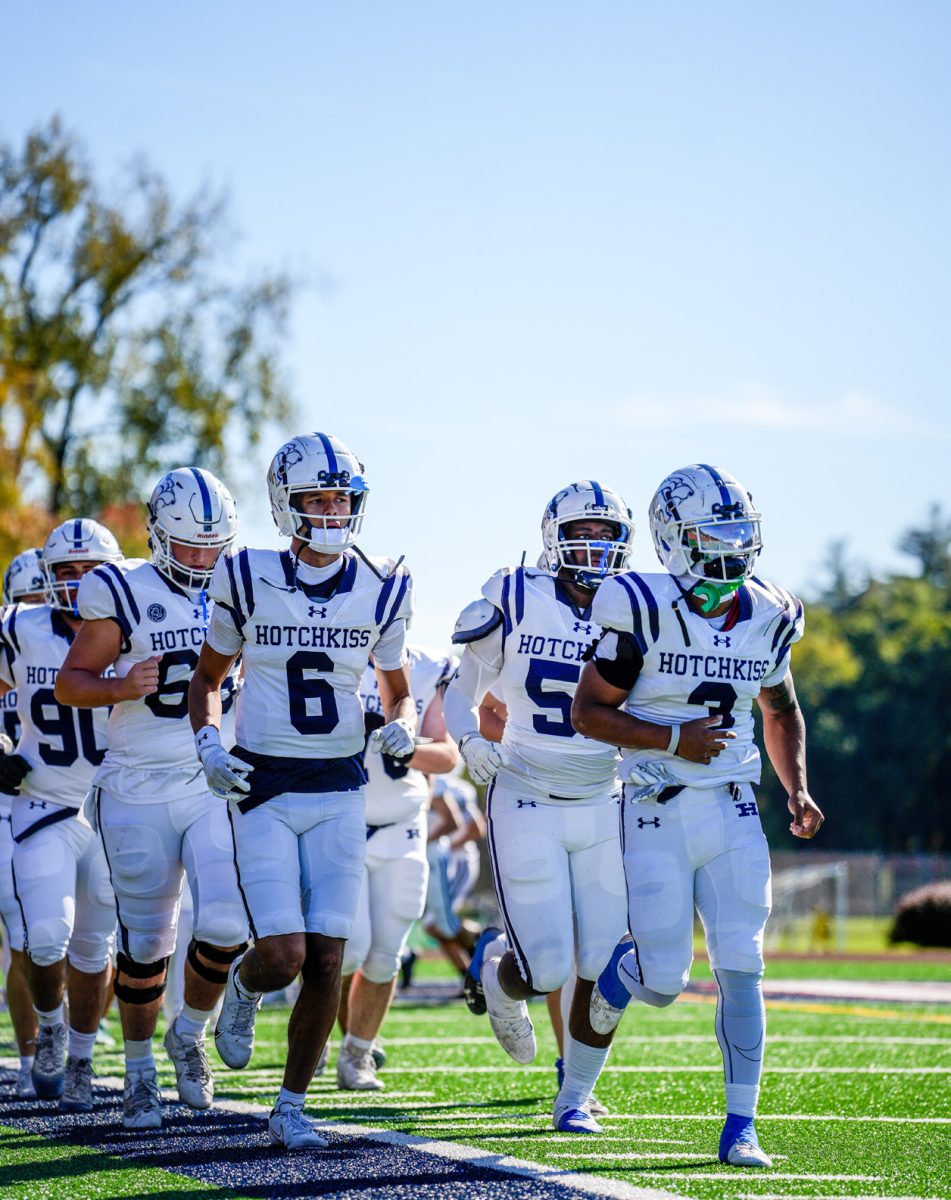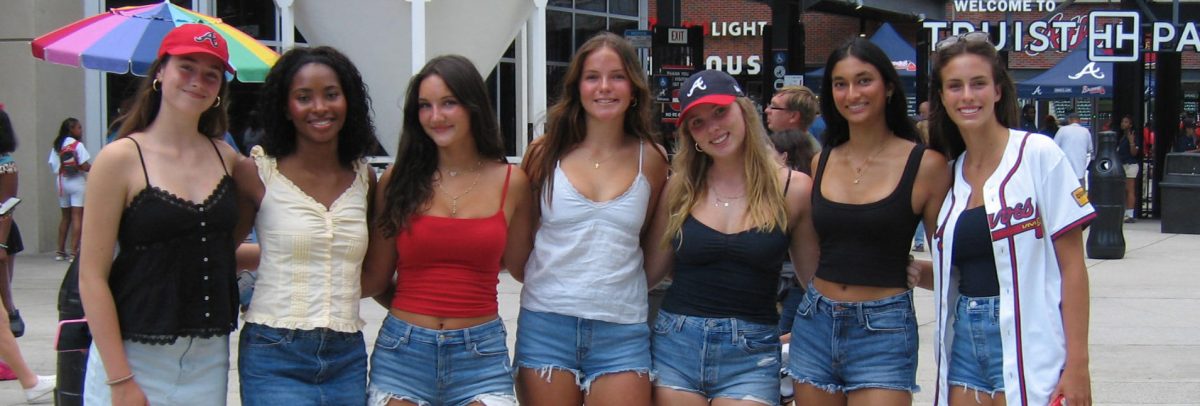Since the opening of the NCAA recruitment window on September 1, student-athletes in the Classes of 2023 and 2024 have been actively recruited by college coaches, leading to several commitments this fall.
Sean Donovan ’23 did not expect that he would become a Division 1 football player at the United States Military Academy West Point before he announced his commitment last spring.
Donovan initially set his sights on playing lacrosse in college. He drew steady interest from college coaches during the summer before his junior year, but did not receive offers when the recruitment window opened on September 1.
While he was discouraged, his success playing offensive and defensive lineman for Varsity Football prompted him to release a highlight tape. A few months later, Donovan received a text from an Army football coach who wanted him to visit West Point. Surprised, Donovan said, “At the collegiate level, I was an undersized defensive lineman, and football wasn’t even my main sport. So when Army Football texted, I could not have been any more excited.” Shortly after Donovan’s official visit, he received an offer and committed to the Black Knights.
Although committed student athletes receive clarity on their future earlier than many others, this does not take away the stress that is associated with the college admissions process. Director of College Advising, Mrs. Serena Oh Castellano is aware of the different timetable student-athletes looking to commit must go through, saying, “Although it depends on the sport, students who are going through the college recruitment process might need to be in a better position earlier in the process. They might need to have their testing done earlier, and coaches will often want to see if your academic record is strong enough by the end of Upper Mid year.”
Every student-athlete travels a different path to college recruitment. There is no one-size-fits-all approach, which can cause stress. Kate Moran ’23, who is committed to Cornell University for sailing, suffered a knee injury and was out for the beginning of the spring sailing season her Upper Mid year, which delayed her recruitment process to late June.
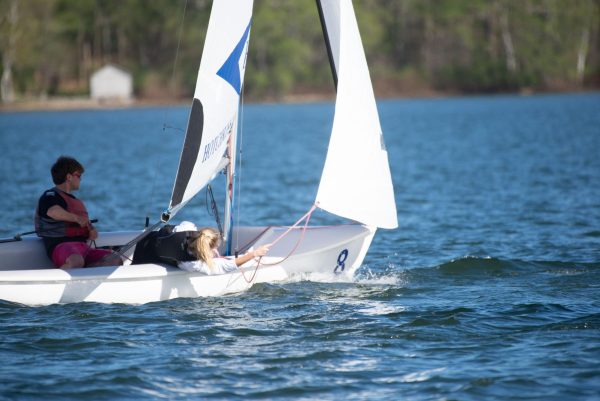
Despite this obstacle, Moran was driven by her passion for sailing to get recruited. She said, “Something that helped me along the way was staying positive and when it got down to it, working hard so that this could be a possibility. Just locking in and knowing [sailing in college] was something that I wanted and working for it also helped.”
The timetable for the recruiting process was different for Brown University lacrosse commit Avery Doran ’24. It began with showcases and tournaments during the fall of her Lower Mid year. Her recruiting process picked up during the following summer, as she did her best to play in front of multiple coaches and gain their attention at camps. Doran thanks Girls Varsity Lacrosse head coach Ms. Anna Traggio for guiding her through the recruitment process, saying, “[Coach Traggio] reached out to [college] coaches for me, as well as [answering] any questions the coaches had about me. Since she went through the process with her daughter Ellie Traggio ’22, she knows how it works and knows the system. She also pointed me in the right direction in terms of the timeline in the fall and let me know what I should be doing in the summer and spring.”
The recruitment process does not end when student-athletes announce their commitment to schools. Mrs. Castellano said, “Even though people talk about having ‘committed,’ until you get your official letter of acceptance, or, sometimes, a ‘likely’ letter, technically all offers for admission are contingent… upon your academic performance remaining consistent and also, your integrity and character.” Ms. Castellano has known of situations where committed student-athletes have had their offer rescinded due to major disciplinary issues and does not want any athletes at the school to be in that position.
As they are committed to schools in the Ivy League, Moran and Doran still have to apply through the regular process, since Ivy League universities do not offer athletic scholarships or guaranteed admissions to recruits. “You have to maintain a certain GPA. You also have to be a leader when it comes to your sport,” Doran said.
Donovan not only went through all the stresses of the traditional process but also West Point’s unique admissions process, saying, “I have to be nominated by a senator or congressperson from my state to be admitted to the Academy. This involved letters of recommendation and an interview with them. Then, I had to do a fitness assessment to make sure I am physically able to do Army activities. Overall, the process was very rigorous.”
The school offers many resources to support student-athletes as they embark on their recruitment processes, including an informational webinar to help begin their process. Mrs. Castellano and the college advising process are looking forward to collaborating with the incoming Director of Athletics when it comes to developing these resources.
Amidst all of the pressure of the admissions process, Mrs. Castellano encourages students, saying, “The most difficult part of being a college advisor is that this process is getting more stressful. As someone who works with young people, it is also a really exciting time in your life. You get to decide your future.”

